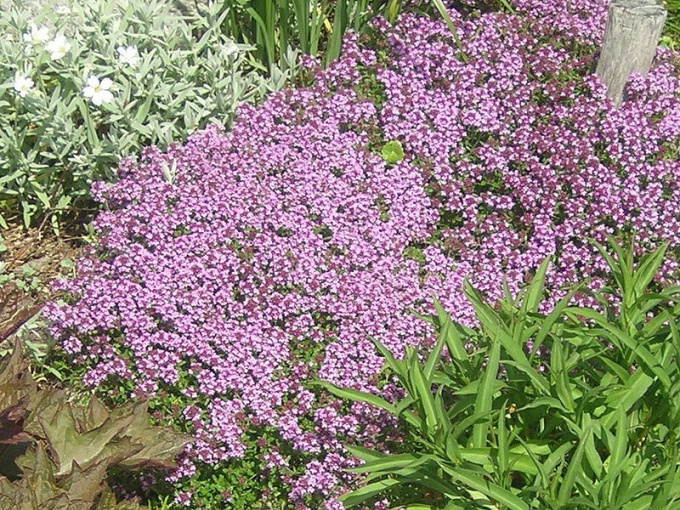Instruction
1
Thyme is a perennial herb 5-30 cm high, lying at the base red-brown rough stems. Blossoming branches directed upwards. Leaves small, opposite, ovoid, solid, covered with glands with essential oils. Flowers are collected in heads. Wreaths of purple-red, sometimes white. The smell of aromatic plants. Thyme – honey plant. It blooms from may until autumn.
2
Grows almost throughout the country on poor soils on dry slopes, plantings or steppes, on sandy soils, in dry pine forests, forest edges. Collect all plant during flowering.
3
The farm is thyme used to ferment cucumbers as a condiment for meat dishes. In thyme a lot of tannins, bitters and essential oil, which is composed of thymol – derived phenol.
4
In the form of tea is used in diseases of intestines, lungs, urogenital tract (the bactericidal action of thymol), with indigestion, fermentation in the intestines, flatulence, colic, atony of the stomach, for coughs, asthma, whooping cough, pulmonary actinomycosis, worms, as krovoochishchajushchee and diuretic, to strengthen the muscles and nervous tissue of the stomach, pain with sciatica, insomnia and neurosis.
5
On one Cup of boiling water one teaspoon of flowers and leaves of thyme and infuse for ten minutes. Drink 1-2 cups a day in SIPS. Gastritis or colitis insist one tablespoon of mixture of herbs of thyme and strawberry leaves in two cups of boiling water, strain and drink two tablespoons every 2-3 hours.
6
A decoction of the flowers of thyme (1 tablespoon to one Cup of boiling water) is used for lotions and irrigations under the eye. Ground into a powder the leaves and flowers of thyme give a sniff if unconscious. For baths for children suffering from rickets and scrofula, in violation of metabolism, a handful of flowers and leaves of thyme insist twenty minutes on five gallons of boiling water and add to full bath. These baths taken twice a week.
7
In addition to the useful and medicinal properties of thyme, there are strict contraindications to its use. For example, thyme and tinctures based on it is contraindicated in people with atherosclerosis, atrial fibrillation and infarction. It is also desirable to use thyme in diseases of the liver and kidneys due to the high content of thymol. It must be treated gently to treatment the thyme, if there are problems with the thyroid gland and is not recommended to take thyme in the presence of stomach diseases with high acidity.
